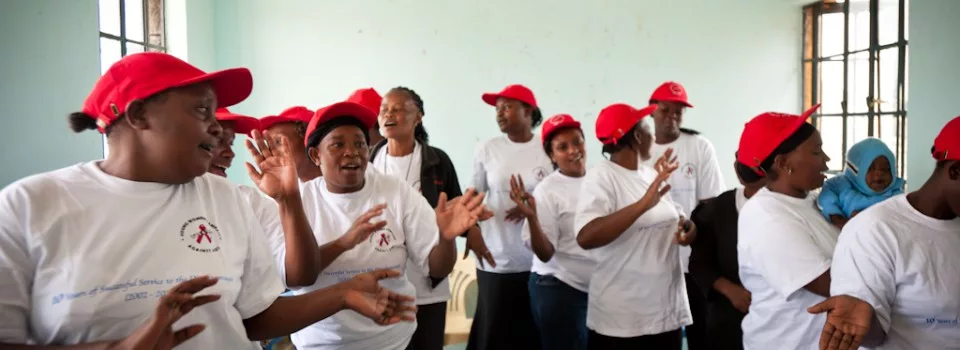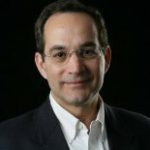By: Melissa Menke, Access Afya

Take a walk around the Access Afya Kisii Village Clinic and you see women laughing together, men meeting in the street to talk about sports, and hear children playing, running through the small lane-ways together. You see so many colours: fruit hanging at local kiosks, the corrugated iron of houses and shops painted an array of bright blues, Safaricom greens and Coca-Cola reds. The other side of this is a community with no access to government services (including clean water, plumbing, rubbish removal, and street lighting), minimal health services, informal schools, and high levels of crime and unemployment. Now you also see the Access Afya micro-clinic, a friendly staff member available in the street-facing pharmacy shop and people stopping by for a chat as they purchase reproductive health pills, condoms or cough syrup. The mannequin dressed as a doctor draws onlookers, and childrenäó»s giggles, but also builds trust in the community. Access Afya is a friendly, accessible health clinic, the same size as its client’s houses, mixing into the local environment. Just like the local vegetable man knows you like 3 sugars in your chai and your daughter likes soft bananas, Access Afya is a part of your routine. Outreaches include events after church and door-to-door information sharing. After you’ve seen a clinician they will call up to check on your progress. If your health issues aren’t resolved we offer complimentary follow-ups for the same issue. If you are referred to a local hospital you are still our patient. We care how your referral goes and ensure you understand your test results. Access Afya believes in improving health care for all. We run a healthy schools program, bringing health, sanitation and nutrition to local schools in the slum. Results from initial base-lining health checks of 100 students aged 3 – 8 showed 4 students were at school with pneumonia, over 25% were referred to the local clinic for more detailed health checks, including 11% with ringworm. While only anecdotal evidence so far we have seen energy levels improved, with previously withdrawn children coming out of their shell. This may be coincidence, or it may be due to the hand washing, health care, and nutrition interventions from Healthy Schools over the past month. That all sounds great, but what is a micro-clinic? Why does Access Afya think they can have an impact in informal settlements? Is there something wrong with hospitals and normal clinics? These are questions often posed to Access Afya. A recent article in Forbes has explored the area of McDonald’s style health care, and by this, we don’t mean offering fries with every visit. McDonaldäó»s have managed to franchise the burger and fries industry, ensuring across the globe if you visit a McDonald’s you get the same service, clean toilets, and the trademark “Would you like fries with that?”value add offering. In a health setting this would mean accessible, technology driven locations focusing on standardized clinical protocols and pricing, customer service, centralized supply chains, continual staff training, and community education. While Forbes discusses the business case for franchised clinics in USA: äóěThe holy grail is a replicable Golden Arches-style model that puts a branded urgent care shop on every corneräóńand thatäó»s what smart money has been chasing in a long list of deals over the last few years.äóť, Access Afya is exploring a similar model in Kenya. Health care in Kenya is often a last resort. Hospitals are full, far from informal settlements, staff are often under-qualified and medicines are at risk of being fake, out of date, or out of stock. Access Afya micro-clinics are situated where the customer base lives äóń in the informal settlements. They are around 15 ft x 15 ft, offering a consultation room, laboratory for common tests, pharmacy, health and hygiene shop, and waiting room. This means we can get a branded clinic on every block, just like Safaricom or CocaCola has done in this market. By using a retail style community model for healthcare we save our clients time but also enable earlier care conversations. The retail clinic model needed to be adapted to the local market. This meant investing in outreach and community education. Outreaches in the community include deworming drives, family planning education and nutrition interventions. If we can reach the community at the onset of illness and foster positive health changes, their costs are lowered and preventative care can keep them out of the hospitals. Access Afya runs two micro-clinics in informal settlements in Nairobi, and plans to be a chain of eight clinics by the end of 2015.
References:
http://www.forbes.com/sites/briansolomon/2014/07/02/drive-thru-health-care-how-mcdonalds-inspired-an-urgent-care-gold-rush/
http://www.newyorker.com/reporting/2012/08/13/120813fa_fact_gawande?currentPage=all
http://www.forbes.com/sites/stevedenning/2012/08/13/how-not-to-fix-us-health-care-copy-the-cheesecake-factory/




